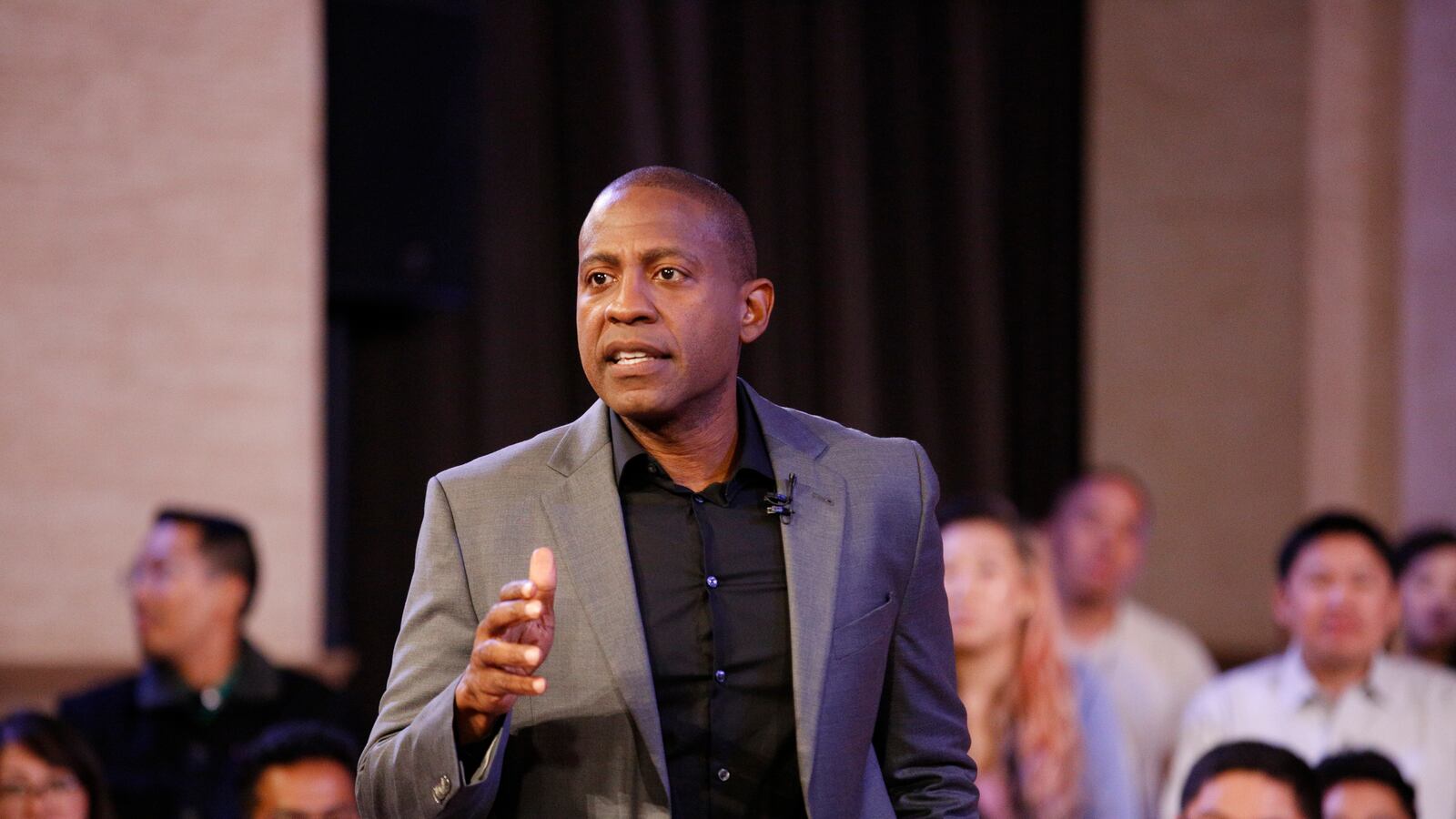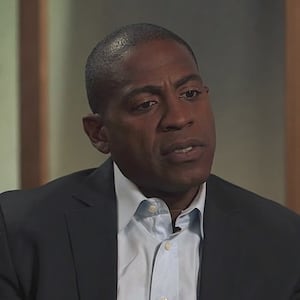Carlos Watson, the chief executive and founder of now-defunct Ozy Media, could soon find himself behind bars over the recent civil lawsuit he filed against Buzzfeed, former Buzzfeed News editor-in-chief Ben Smith and Semafor, the news site that Smith launched in 2022.
The Eastern District of New York is accusing Watson, who was arrested on fraud charges last year for allegedly misleading investors of his flailing media company, of willfully violating a protective order by using documents procured during discovery of his criminal case. In a letter sent to Judge Eric Komitee on Wednesday, the district’s US attorneys are requesting a hearing to determine whether to revoke Watson’s bond and if the protective order needs to be modified.
According to the government, internal emails from Buzzfeed and Smith had been produced as discovery materials in its case against Watson, who is accused of defrauding Ozy investors of tens of millions of dollars by impersonating media company executives and making fraudulent misrepresentations about the business.
Watson’s civil attorneys did not immediately respond to a request for comment.
Last month, Watson filed a civil complaint alleging that Smith stole trade secrets from Ozy Media in order to start Semafor, claiming that Smith gathered this information while still at Buzzfeed. Prior to Smith leaving Buzzfeed to become a media columnist for The New York Times, Buzzfeed was involved in acquisition conversations with Ozy in 2019. Smith, meanwhile, first reported on Ozy’s fraudulent activity in September 2021, which eventually led to Ozy shuttering and helped launch the investigations into Watson and the embattled media company.
Watson’s complaint against Buzzfeed, however, quoted multiple internal communications between Smith and Buzzfeed CEO Jonah Peretti, prompting the government to determine that these emails were all produced during discovery of its criminal case. According to an exhibit filed on Wednesday, U.S. Attorney Jonathan Siegel contacted Watson’s criminal defense attorneys on December 21 to ask if protected discovery material was used in their client’s civil litigation.
Ronald Sullivan, one of Watson’s lawyers, replied to Siegel and said that neither he nor attorney Kenneth Montgomery had provided any of that information for Watson’s civil case. A week later, however, Sullivan circled back and admitted that the materials had “inadvertently” been used in the Buzzfeed lawsuit.
“This responds to the first question in your email below. It appears that documents subject to the protective order in the criminal case were inadvertently used in Mr. Watson’s civil case,” Sullivan wrote on December 28. “My understanding is that Mr. Watson’s lawyers intend to move to redact any such information.”
“There is no dispute that protected Discovery Material was provided to Watson’s civil attorneys in clear violation of the Protective Order. There also appears to be no dispute that the person who wrongfully provided those materials was Watson,” U.S. Attorney Breon Peace said in the letter to the court. “No one other than Watson and defense counsel (and their staff) were permitted to have access to the Discovery Materials, and defense counsel has made clear that defense counsel or their staff did not provide the documents to (in counsel’s words) ‘Watson’s [civil] lawyers’ for ‘Watson’s civil case.’”
As for defense counsel’s claim that the violation of the protective order was “inadvertent,” Peace argued that was “unlikely,” especially since Watson has already shown a “larger pattern” of attempting to “retaliate against witnesses.” The government noted that Watson, for instance, has publicly accused Smith and Peretti of fraudulent conduct and has called on them both to be criminally charged.
“Watson’s violation of the Protective Order demonstrates that he cannot be trusted with the duty to protect the Discovery Materials as the order requires,” Peace wrote. “The government therefore respectfully requests that the Court modify the Protective Order to limit Watson’s ability to disseminate victim and witness information.”
The US attorney added: “Watson and Ozy should still be permitted to review such Discovery Materials, but only in the presence of defense counsel or defense staff.”
The government also said that since there is probable cause that Watson violated the protective order and thus committed a felony, the court should hold a detention hearing to determine whether the defendant’s bail should be revoked.
“Moreover, prior bail conditions imposed on Watson to prevent such misconduct have proven ineffective,” Peace wrote, noting Watson’s bond explicitly prohibits him from retaliating against witnesses.
“Watson’s disregard of that condition now, months before trial, raises serious concerns about what further misconduct he may engage in or attempt as trial approaches and as more sensitive materials, including witness lists and witness statements, are disclosed,” Peace added. “The government therefore respectfully requests that the Court schedule a detention hearing to determine whether to revoke Watson’s bail.”
Additionally, the government also says the court may need to hold a “Curcio” hearing for the detention hearing, arguing that Sullivan may be conflicted as counsel due to being a potential witness against Watson.
Watson is currently facing up to 37 years in prison on the charges of conspiracy to commit securities fraud, conspiracy to commit wire fraud and aggravated identity theft. Two other Ozy executives, Samir Rao and Suzee Han, have already pleaded guilty to their roles in the alleged criminal scheme.





